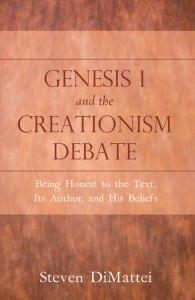A recent post over on Robert Price’s blog, author of The Christ Myth Theory and Its Problems, critiquing Bart Ehrman’s recent book, Did Jesus Exist? The Historical Argument for Jesus of Nazareth, in which he defends the historical existence of Jesus, got me thinking about the topic.
Currently unfamiliar with both of these books, I nonetheless offer up these points for consideration. At first glance, here is the evidence as it stands stacked up against those who would claim that Jesus is but a myth, that no historical Jesus ever existed.
1) There are frankly speaking no mythic elements in the Jesus story/stories preserved in the gospels. There are no talking serpents, no anthropomorphic deities, no allusions to agricultural myths, no presentation of a primordial or pre-historical time-frame, no description of a decent and ascent from the underworld, no personified rivers, trees, magical palm leaves, etc. The only … Read more





